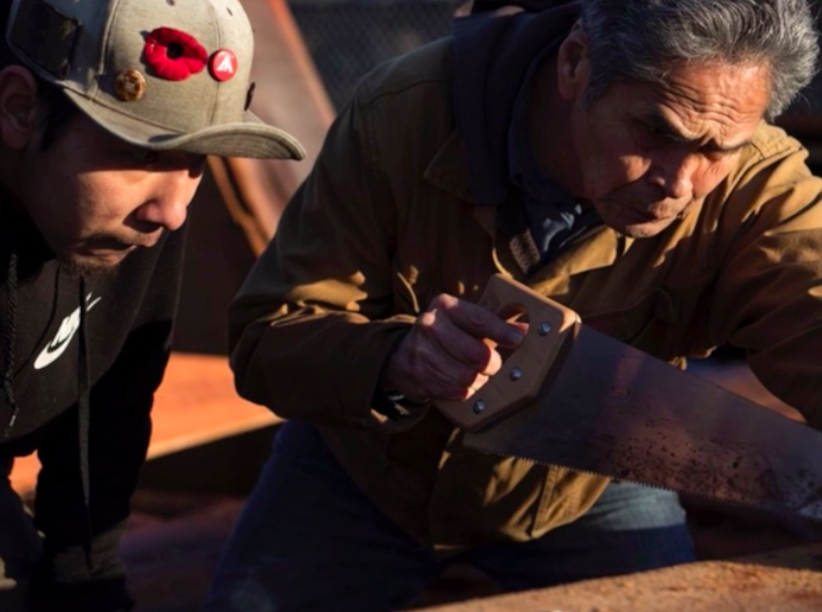This spoken letter was created to honour Indigenous ways of knowing through
connection to the land. I am grateful to elder and master carver, Joe Martin for sharing his experiences growing up with the Tla-o-qui-aht laws of respect and responsibility to the land.
Touched by his accountability to nature when carving canoes and to inspiring future generations, I decided to write a poem detailing the process of choosing a tree to carve. To me, his experience exemplifies the authority that the Tla-o-qui-aht community has in caring for and using the land for wellbeing. The poem reflects a stark difference in colonial values and Indigenous ways of knowing, acting to decolonize and support the revitalization of Indigenous knowledge through the dance of words. I became inspired to learn about the Tla-o-qui-aht Tribal Park Alliance, which engages community members in reconciliation by affirming rights to being stewards of the land. It became clear to me that traditional activities like canoe carving, could not be sustained unless the natural ecology was cared for.
With Tla-o-qui-aht values and stories in mind, I decided to go to the beach to paint a rock with the word I’isaak meaning respect for life in all its diversity, as shown in the videos I took and shared in this letter. While painting this rock, with the waves crashing against the shore, cedars swaying in the wind, and the eagles diving for their breakfast, I felt compelled towards the responsibility to conservation. Engaging in this creative process allowed me to reflect on the resilience and strength of Indigenous communities. I felt as though the vitality of the healthy ecosystems reflected a beautiful metaphor of the revitalization of Indigenous culture, and thus chose images of nature throughout my letter, in my painted rock, and in the forest sounds accompanying the piano which played in the letter.
This assignment was very meaningful to me, and I am grateful for the knowledge and self-reflection I was able to gain in my role in reconciliation that will continue into my social work career.
My hope is that those listening will be inspired by the Tla-o-qui-aht community highlighted, and feel motivated towards their own role in reconciliation, which will ripple societal change to motivate action by our government.
-Olivia





